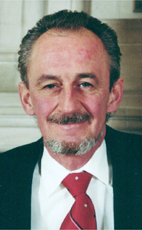Mr. Speaker, I too was elected by 60 percent of my constituents to serve Canada in this House. That is what I intend to do.
I would like to address the House today to set the record straight. I want to talk about the exceptional measures taken recently to help francophones in this country develop culturally. It is true that the arts and culture sector in Canada has suffered cutbacks, on both the anglophone and francophone sides. You know this better than anyone: the economic situation in which we find ourselves requires that the government reduce spending. It has no other choice. This is the case for Canada and it is the case for all other countries in the world, including Quebec, more about which, which is now up against new international stakes.
All sectors in society, including the cultural sector, must look at the situation and carry their share of the load. Canada's prosperity depends on it. But let us be clear: there is no question of the economic development of our country moving ahead to the detriment of our culture and our collective identity.
Above all, the Government of Canada has no intention of weakening without due cause a sector as important as culture, which alone contributes $30 billion to the Canadian economy and represents almost 900,000 direct jobs, even less so in this time of expanding markets and borders when the cultural vitality of a country is a key to success and to the future.
Francophones share in this cultural wealth that makes Canada so unique and so successful. One quarter of the population speaks, sings, writes and lives in French, including my community in northern Ontario. From our earliest history, francophones have constituted an influential force that has contributed to the growth of this country, culturally, socially and economically.
In this context, the government's commitment to francophone communities in minority situations takes on its full significance. The government wants to help its communities meet the challenges of their situation so that they can continue to take part in Canada's development and help strengthen its cultural identity.
Francophones outside Quebec recently expressed their concerns regarding government cuts to the CBC. They were worried that these cuts would have adverse effects on regional programming.
We know how important it is for these communities to have access to French language broadcasting that reflects their values, presents their perspective on the world and enables them to communicate with each other. For those who are most isolated, it is nothing less than a matter of survival.
Aware of this reality, the CBC and the government took the necessary decisions. Last January, the CBC announced a series of measures to reduce the impact of these cuts on French language programming outside Quebec.
First, the four western television stations will give up the news cast Ce soir . In addition, regional stations will continue to produce children's, news and special broadcasts focusing on events of importance to these communities.
Second, the CBC will make available to independent producers and community groups of the Acadian community in the maritimes a mobile T.V. unit to cover cultural and community events. It will also provide a $500,000 line of credit.
Third, the sum of $500,000 will be set aside for the most affected radio stations outside Quebec, those in Vancouver, Edmonton, Regina and Windsor, in order to augment the content of local broadcasting.
I remind everyone that radio stations serving minority francophone communities were less affected by the cuts than other CBC radio stations on the average throughout the country.
In a press release dated January 30, the Fédération des communautés francophones et acadienne, a national coalition of nine provincial and two territorial francophone associations, praised the efforts of the CBC. It said: "This reorganization demonstrates that the CBC is becoming increasingly attuned to the needs of the communities in the various provinces, as well as to its mandate to those communities".
Subsequent to this, the Government of Canada also made two major decisions which will help the CBC fulfil this mandate. It announced that it would be giving an additional $10 million to the French and English language services of CBC radio.
According to Marcel Pépin, Vice-President CBC French language radio, this will enable radio to better fulfil its primary missions: to support talent, maintain information systems which are strongly anchored in the regions, and properly reflect regional voices on the AM and FM networks.
One piece of good news follows another. Starting April 1, 1998, the government will guarantee stable financing to the CBC for the next 5 years, in keeping with the announcement it made less than a week ago.
In addition, a new television and cable production fund has been created for the production of Canadian programs, totalling $200 million yearly, and now accessible to the CBC.
I hardly need to point out that these announcements were received with a great deal of joy by the francophone communities in this country. Canada's cultural vitality must of necessity include the cultural development of its francophe population. French speaking Canadians have shaped the history of this country, and they lend a singular face and a special voice to Canada. That is why, despite the financial restrictions facing it, the government has intervened to strengthen the cultural foundations of the francophone communities outside Quebec.
To touch the culture of a country is to touch its very soul. On the eve of a new millennium, we are becoming increasingly aware of the necessity of using every possible means to strengthen the soul of this country. All of these measures, and those the government plans to take in future to safeguard Canadian culture, are paving the way to the Canada of tomorrow.

